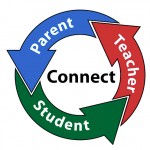National Parental Involvement Day
Christie Skelly | Nov 15, 2012 | 0 comments
 From Tiger moms, to helicopter parenting, to the idea “it takes a village,” no matter the parenting style or ideology, parents play the biggest role in their child’s life. Far spread across every phase and area in life, parental influence will impact physical, emotional, and intellectual development. As teachers, it should be no surprise to you that an education fosters the same kind of development in kids. That is why there are so many reasons why it is important that parents be involved in their child’s education.
From Tiger moms, to helicopter parenting, to the idea “it takes a village,” no matter the parenting style or ideology, parents play the biggest role in their child’s life. Far spread across every phase and area in life, parental influence will impact physical, emotional, and intellectual development. As teachers, it should be no surprise to you that an education fosters the same kind of development in kids. That is why there are so many reasons why it is important that parents be involved in their child’s education.
Parental involvement in a child’s education both in and out of the classroom offers additional support for the good that you as teachers do for your students and their children. For National Parental Involvement Day here is a list of a few ways a parent can get involved in the classroom:
For Younger Students- Be a class reader: Story time for younger students is one of the most looked forward to time of day. Bring in a parent to read to students whether as a group or with select students who may be struggling. Parents reading in the classroom will reinforce reading skills and encourage students to read at home with their own parent.
- Be a parent tutor: If available in the afternoons, even if it’s not their own child, encourage parents to spend some time tutoring students in the library for a little extra hands-on help. While most teachers offer extra help themself, sometimes it takes a different perspective for students to understand a lesson.
- Work as a “specials class” helper: If a parent has a particular interest in music or art, or is a soccer coach looking to help during that unit in gym class, allowing parents to come in to help in these classes not only assists the teacher but also shows the students that what they are learning can turn into a hobby and passion to last a lifetime. It’s more of a life lesson than an immediate pencil sketching or lesson on the recorder.
- Volunteer as class parent: Generally, class parents can be as involved as their schedules make them available to be. Whether it is planning classroom parties, chaperoning field trips, organizing special classroom events like speaker presentations, plays, or book fairs, parents can help bring additional learning resources into the classroom.
- Lead a Special Interest Group: Teachers are spread thin enough with most having over 20 students per class and having lesson plans to create and papers to grade with fewer resources than in the past. Parents taking on the after school extracurricular activities such as the drama club, SADD program, or science club could keep many of these beneficial programs running in the schools.
- Sign up for Career Day: Parents coming into the classroom to share with students about their career broadens student’s horizons beyond what their mom and dad, aunt and uncle do for a living. Opening their eyes to different careers they may not have otherwise been exposed to offers the endless possibilities for a successful career in something they have a real interest in. A parent sharing with students how they got to be successful at what they do is reinforcement and inspiration for the hard work a student needs to put in to be successful too.
- Coach a sports team: Athleticism is a talent but also a critical part to physical and emotional health. Parents with the ability to lead a sports team can help students develop their own skills and offers a safe healthy environment for them to thrive in.
- Work as a library assistant: Similar to career day, parents can help students discover and learn about their interests by helping them do research on areas that spark an interest.
How do you get parents involved in their student’s education at home AND in the classroom? Share your ideas with us on our Facebook page or leave a comment below.
Filed Under: Events • For Parents • Teachers
